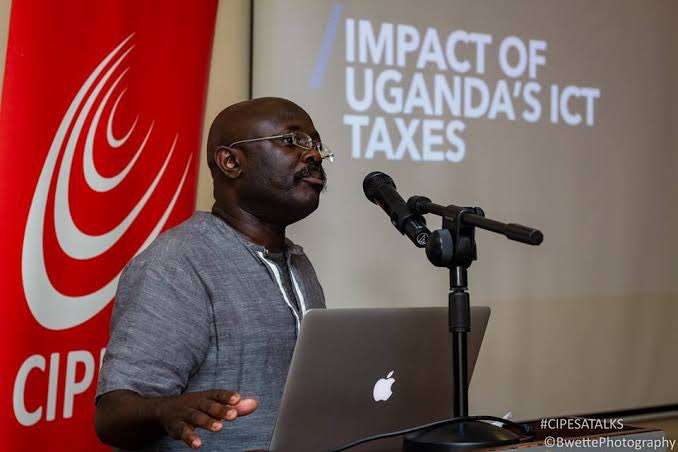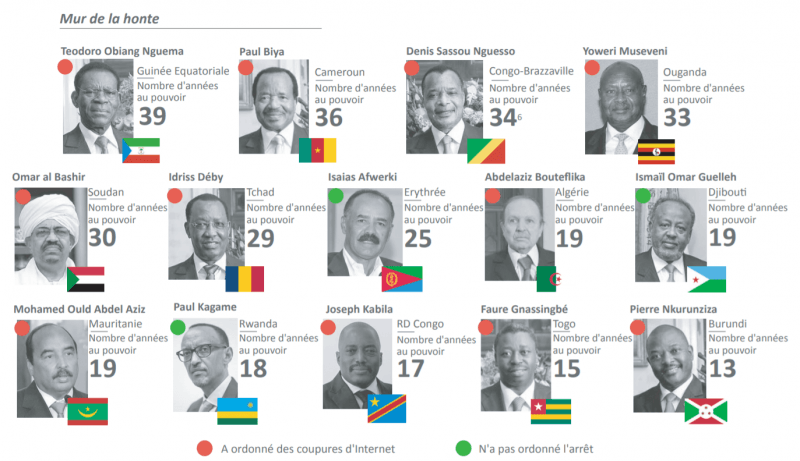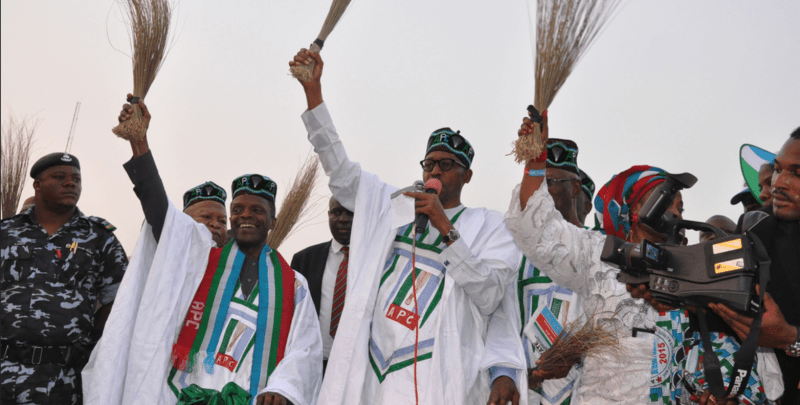Statement |
Dr. Wairagala Wakabi, the Executive Director, of the Uganda-based Collaboration on International ICT Policy for East and Southern Africa (CIPESA) has been detained, upon arrival, at the Julius Nyerere International Airport in Dar es Salam, Tanzania earlier today. Immigration authorities have declined to state the basis of his arrest.
Dr. Wakabi had been invited to Tanzania to participate in the annual commemoration of the Tanzania Human Rights Defenders’ Day hosted by the Tanzania Human Rights Defenders Coalition (THRDC) on April 28, 2019. Under the theme “Claiming and Protecting Online Civic Space for Promotion and Protection of Human Rights in Tanzania”, the event is to be preceded by a two-day workshop aimed at engaging civil society organizations, online journalists and human rights activists on how to safely use online platforms for promotion and protection of human rights.
According to lawyers from the THRDC, authorities have blocked their access to Dr. Wakabi, stating that he is under interrogation – the outcome of which will determine whether he is granted entry into Tanzania or deported back to Uganda.
“We are currently at the airport following the matter. They have denied us access to him. We strongly condemned this untimely and unnecessary detention of our guest from our neighbouring country Uganda. We call upon all members of the East African Community (EAC) to condemn this tendency of disturbing citizens of EAC when travelling within the subregion,” stated Onesmo Olengurumwa, the THRDC National Coordinator.
CIPESA is among the organisations nominated by THRDC to receive an award for is regional work in promoting human rights online to be handed out during the commemoration.
CIPESA condemns the detention of Dr. Wakabi and calls upon the authorities to unconditionally release him.
UPDATE: After hours of interrogation, Dr. Wakabi has been deported back to Uganda this evening. However, lawyers remained unable to establish the basis of the detention and deportation. They report that authorities denied him entry into Tanzania on grounds of “national interest”.
Dictateurs et restrictions : cinq dimensions des coupures d’Internet en Afrique
Nouveau Rapport |
Au cours des quatre dernières années, pas moins 22 gouvernements africains ont ordonné des coupures du réseau Internet. Depuis le début de l’année 2019, six pays africains dont l’Algérie, la République Démocratique du Congo (RDC), le Tchad, le Gabon, le Soudan et le Zimbabwe ont déjà connu des coupures d’Internet.
Un nouveau rapport produit par le CIPESA (The Collaboration on International ICT Policy for East and Southern Africa) intitulé «Dictateurs et restrictions : cinq dimensions des coupures d’Internet en Afrique» souligne cependant que ces coupures d’Internet sont exclusivement opérées par les Etats les plus despotiques d’Afrique.
 Selon ce rapport, 77% des pays où les coupures d’Internet ont été opérées au cours des cinq dernières années sont classés comme autoritaires sur l’indice de démocratie produit par le service de renseignement économique de l’Economist (Economist Intelligence Unit). Hormis ceux-là, tous les autres pays africains qui ont procédé aux coupures de services de communications sont classés dans la catégorie des régimes hybrides, ce qui signifie qu’ils ont certains éléments de démocratie combinés à de fortes doses d’autoritarisme.
Selon ce rapport, 77% des pays où les coupures d’Internet ont été opérées au cours des cinq dernières années sont classés comme autoritaires sur l’indice de démocratie produit par le service de renseignement économique de l’Economist (Economist Intelligence Unit). Hormis ceux-là, tous les autres pays africains qui ont procédé aux coupures de services de communications sont classés dans la catégorie des régimes hybrides, ce qui signifie qu’ils ont certains éléments de démocratie combinés à de fortes doses d’autoritarisme.
Les régimes autoritaires qui ont ordonné des coupures du réseau sont l’Algérie, le Burundi, la République Centrafricaine (RCA), le Cameroun, le Tchad, la RDC, le Congo (Brazzaville), l’Egypte, la Guinée équatoriale, le Gabon, l’Ethiopie, la Libye, la Mauritanie, le Niger, le Togo, le Soudan, et le Zimbabwe. Les régimes hybrides qui ont procédé à des coupures d’Internet comprennent la Gambie, le Mali, le Maroc, la Sierra Léone et l’Ouganda.
Quant aux pays classés comme autoritaires mais qui n’ont pas effectué de telles coupures, le rapport indique qu’il est probable que «l’Etat autoritaire soit si brutal et terrifiant que la société civile ou tout mouvement d’opposition ou de protestation – en ligne et hors ligne- soit étouffé dans l’œuf » ou alors que «les mesures de surveillance d’Internet en place rendent toute coupure inutile». Ces pays comprennent Djibouti, l’Erythrée et le Rwanda.
Le rapport note également que les pays dont les dirigeants sont au pouvoir depuis plusieurs années sont plus enclins à ordonner des coupures d’Internet. En janvier 2019, 79% des 14 dirigeants africains qui avaient été au pouvoir depuis 13 ans ou plus avaient ordonné des coupures, principalement pendant les périodes électorales et les protestations publiques contre des politiques gouvernementales.
Il s’agit notamment de Teodoro Obiang Nguema en Guinée équatoriale (39 ans); de Paul Biya au Cameroun (36); de Denis Sassou Nguesso au Congo Brazaville (34); de Yoweri Museveni en Ouganda (33); d’Omar El Bashir au Soudan (30); d’Idriss Déby au Tchad (29); d’Abdelaziz Bouteflika en Algérie (19); de Mohamed Ould Abdel Aziz en Mauritanie (19); de Joseph Kabila en RDC (17); de Faure Gnassingbé au Togo (15); et de Pierre Nkurunziza au Burundi (13).

Selon ce rapport, l’année 2019 pourrait connaitre un nombre record de coupures du réseau, car au moins 20 Etats africains tiendront diverses formes d’élections, qu’elles soient locales, législatives, générales ou présidentielles.
Au fil des ans, de nombreuses perturbations du réseau se sont généralement produites dans les pays africains autocratiques autour de périodes électorales, et parmi les Etats qui ont prévu la tenue d’élections durant cette année, certains avaient déjà effectué diverses formes de coupures au cours de périodes électorales précédentes (comme la Guinée équatoriale), de manifestations publiques (Cameroun, Togo) ou à l’occasion d’examens scolaires nationaux (Algérie, Ethiopie).
Autres faits saillants du rapport «Dictateurs et restrictions : cinq dimensions des coupures d’Internet en Afrique» :
Le rapport note que les gouvernements qui ordonnent des coupures et les fournisseurs de services Internet (FSI) qui les mettent en œuvre, assument de plus en plus ouvertement ces actions. Les gouvernements se justifient en disant que les technologies numériques sont de plus en plus utilisées pour diffuser de fausses informations, propager des discours de haine et, prétendument, pour attiser le désordre public et compromettre la sécurité nationale.
De leur côté, de plus en plus de FSIs et d’opérateurs de plateformes de communication rendent publiques leurs réponses aux injonctions de coupure, aux requêtes reçues pour fournir des données personnelles des utilisateurs et aux demandes d’interception émanant des gouvernements grâce aux rapports de transparence. Une telle évolution pourrait conduire à une banalisation des coupures. Comme conséquence, un nombre croissant de gouvernements n’auraient plus honte d’assumer ouvertement les ordres de coupure. Des éléments positifs sont à noter cependant, dans la mesure où cela pourrait servir de base pour l’ouverture d’un procès ou faire avancer le plaidoyer.
Le rapport réaffirme que les coupures d’Internet, même de courte durée, affectent de nombreux pans de l’économie nationale et que leurs impacts persistent bien au-delà des périodes durant lesquelles l’accès a été perturbé. «Même si seuls cinq des pays qui ont déjà coupé l’accès à Internet et qui tiendront des élections refont ce genre d’action durant l’année en cours, notamment la limitation d’accès aux applications telles que Twitter, Facebook et WhatsApp au niveau national pendant cinq jours chacun, le rapport estime que les pertes économiques s’élèveraient à plus de 65,6 millions de dollars américains».
En outre, le rapport note que certains pays qui coupent l’accès à Internet ont des taux d’utilisation d’Internet les plus bas, et des coûts de paquets de données les plus élevés d’Afrique. La logique pourrait suggérer que les pays à faible consommation d’Internet soient les moins enclins à couper l’accès à Internet, du fait que la population en ligne soit trop insignifiante pour menacer «l’ordre public» ou «la sécurité nationale», ou même constituer une entrave sérieuse contre le pouvoir en place. Paradoxalement, le rapport trouve que les gouvernements africains les moins démocratiques, indépendamment du nombre de leurs citoyens qui utilisent internet, craignent la capacité de cet outil à renforcer la participation citoyenne et le franc-parler des citoyens ordinaires face au pouvoir.
Ce rapport peut être téléchargé sur CIPESA.
CIPESA Submits Comments to Uganda Communications Commission on Improving Access to ICT for Persons With Disabilities
By Daniel Mwesigwa |
Last year, Uganda’s communications regulator commissioned a study to establish the status of access and usage of Information and Communications Technology (ICT) by Persons With Disabilities (PWDs). In response to a call for comments, CIPESA made submissions to the commission, which could help various government agencies to devise strategies that meaningfully improve usage of digital technologies by PWDs.
According to Uganda’s statistics bureau, persons with disabilities comprise 16% of the country’s population of 37.5 million. However, they face various limitations in accessing and using ICT tools and services. The draft report of the study commissioned by the Uganda Communications Commission (UCC) shows that national ownership of a radio and a mobile phone among PWDs was high at 70% and 69% respectively. Ownership of fixed-line telephones, desktop computers and laptops was very low at 0.5%, 1% and 3.9% respectively. However, 15% of respondents’ households had access to the internet.
Below are highlights from CIPESA’s submission:
1. Disaggregate results by type of disability
While the report highlights respondents’ type of disability (61% had a physical disability, 31% were visually impaired, and 2% had a hearing impairment), it does not show how the nature of disability affects access and usage of ICT. Persons with disabilities are not a homogeneous group and the nature of disability influences how they may perceive, be able to access and to use ICT. It may not be possible therefore to address the distinct needs of different categories of PWDs if data is not disaggregated by type of disability – as indeed it should be disaggregated based on gender, location, income, among other demographics.
2. Comparative analysis of data
The report provides ICT access and usage figures for PWDs (e.g. 69.4% mobile phone ownership; 3.9% had laptop computers and 1% desktop computers; 15% of households had access to the internet). However, these numbers need to be presented and analysed alongside overall national statistics on access and usage if they are to offer direction on the remedial actions needed.
3. Taxes deepening exclusion
Only 14% of respondents had access to a bank account compared to 86% that accessed financial services through other mechanisms such as mobile money, and village savings and loan associations. One third (33%) had access to mobile money, which is lower than the national average of 55%. Further, 41% of the respondents lacked access to any form of financial services, compared to the national average of 22% that is financially excluded.
Worryingly, majority of PWDs (66%) said their use of social media had reduced with the introduction last July of the Over The Top (OTT) tax, while 26% said they were no longer using social media. Only 8% had not changed their usage levels. According to the report, 52% of PWDs access social media on their phones, while 12% access it on their computers.
As CIPESA has previously found, OTT platforms and mobile money networks had considerably eased the lives of PWDs. For example, platforms like WhatsApp were used to disseminate critical information among individuals with hearing impairment before the added cost of using social media rendered them unaffordable to many, who already faced challenges in finding employment and often relied on financial support from others. For UCC and other relevant Uganda Government institutions, these findings should not be taken lightly and should inform policy in this area.
4. Awareness and usage of assistive technologies
Assistive technologies are products, devices, or equipment, used to maintain, increase, or improve the functional capabilities of individuals with disabilities. A very concerning finding in the Report is that 76% of PWDs were not aware of the low-cost Assistive Technologies like manual Perkins Brailler, hand-held magnifiers, hand frames/slates and communication boards. Only 14% of respondents were aware of the Perkins Brailler yet its usage was low at 4%. Just 13% of the respondents were aware of magnifiers yet only 2% used them. Issues of awareness of these technologies, their cost and availability, are apparent. The UCC should offer subsidies for assistive technologies through the universal service access fund, the Rural Communications Development Fund (RCDF).
5. Privacy and data protection
The right to privacy is a core entitlement for every individual under article 27 of the Uganda Constitution. The Persons With Disabilities Act, 2006, section 35 protects PWDs from arbitrary or unlawful interference with their privacy. However, the report does not assess PWDs awareness of their privacy rights or data security skills. Such an assessment is necessary to inform remedies including on capacity development.
6. Public and private sector compliance
Consistent with international conventions and instruments such as the UN Convention on the Rights of Persons with Disabilities (CRPD) and the Sustainable Development Goals (SDGs), as well as domestic laws such as the national constitution, Persons With Disabilities Act 2006, and the National IT and Disability Policy, the emphasis on inclusion and non-discrimination for PWDs cannot be overlooked if the country is to attain her development goals.
As the government works towards implementing the ICT and Disability Policy, the emphasis on Website Accessibility Guidelines (WAG) can be fast-tracked by auditing compliance with the 2014 ‘Guidelines for Development and Management of Government Websites’ which were developed by the National Information Technology Authority Uganda (NITA-U). Entities that do not comply with universal accessibility standards should be sanctioned.
Further, the Equal Opportunities Commission, working with other relevant entities, should require government ministries, departments and agencies (MDAs) and private enterprises which offer public services to prepare annual statements in which they report on how they have worked towards increasing accessibility and inclusiveness for PWDs.
The full submission can be read here.
#KeepItOn: Nigeria Urged to Ensure Online Communications Remain Accessible During Elections
By Juliet Nanfuka |
The Collaboration on International ICT Policy in East and Southern Africa (CIPESA) has joined the #KeepItOn coalition in urging the Nigerian Authorities to ensure that access to digital communications remains open before, during and after the elections which take place on February 16, 2019.
The call implores the state to reaffirm its commitment to keep the internet during this critical political time. It also notes that a shutdown down could cost the country an estimated $134,251,654 per day in direct economic costs, and impact on the realization of economic, social, and cultural rights broadly.
Disruptions to online communications contribute to economic impacts which persist far beyond the days in which access is disrupted due to systemic effects which harm efficiency throughout the economy. Internet shutdowns, however short-lived, undermine economic growth, and erode business confidence as global and national perceptions on the offending country are also affected.
Framework for Calculating the Economic Impact of Internet Shutdowns in Sub-Sahara Africa
Meanwhile, concerns of a shutdown have remained among citizens, leading to information being shared on how to stay online in the event of a network disruption.
Increasingly, disruptions to communications have occurred around election times and during public protest often related to the political regime. Among some of the cases include Equatorial Guinea which in November 2016 blocked access to the internet and to opposition websites ahead of a nationwide election; Uganda also in 2016, blocked access to social media sites and mobile money transactions on two occasions due to election related events; while that same year, Gabon blocked social media access and also imposed a curfew on internet access following widespread conflicts disputed presidential election results. Last year, Togo interrupted communication following public protests against President Gnassingbe, whose family has ruled the country for over half a century. At the start of this year, DR Congo blocked access to “preserve public order after ‘fictitious results’ started circulating on social media.”
See the joint letter on keeping the internet open and secure here.
Social Media Tax Cuts Ugandan Internet Users by Five Million, Penetration Down From 47% to 35%
By Juliet Nanfuka |
The tax which the Uganda government introduced on use of social media last July has slashed the number of internet users in the country by five million in three months, according to figures from the industry regulator, the Uganda Communications Commission (UCC). The numbers also show that revenue from the tax is far from the windfall which government had predicted the tax would add to the national treasury.
The figures released by the commission show that only half of the country’s internet subscribers were paying the Over-The-Top (OTT) service tax in the third month after its introduction. Those paying the tax fell from eight million subscribers in July to 6.8 million in September. In June 2018, a month before the introduction of the tax, the internet penetration rate in Uganda stood at 47.4% (18.5 million internet users) but three months later, it had fallen to 35% (13.5million users).
Monthly revenue from the tax was equally on a downward trend, falling from Uganda Shillings (UGX) 5.6 billion (USD 1.5 Million) in July 2018, to UGX 4.09 billion (USD 1.1 Million) in August 2018 and further to UGX 3.96 billion (USD 1.08 Million) in September 2018.

The figures from the UCC suggest that many internet users may have stopped accessing the internet altogether since July. But they also reflect the growing number of Ugandans who are using virtual private networks (VPNs) as a means to continue accessing social media while avoiding to pay the daily OTT tax of UGX 200 ( USD 0.05).
The figures from the regulator appear to confirm the fears expressed by many upon the introduction of the tax, that it would harm the sector by undermining internet access and affordability, while also threatening access to information and freedom of expression.
Upon the introduction of the social media taxes last July, the government had anticipated revenue collections of up to UGX 400 billion (USD 108 million) per annum, while projections from the June 14 national budget speech for the fiscal year 2018/19 had projected that up to UGX 486 billion (USD 131 million) could be collected annually by 2022.
Earlier this month, Uganda’s ICT minister Frank Tumwebaze hinted that his ministry may have been misled by the finance ministry into supporting the tax on the assumption that it would widen the country’s revenue base. Accordingly, parliament’s committee on Information and Communication Technology (ICT) ordered the ICT ministry to conduct an assessment on the impact of the social media tax and share their views with the finance ministry.
Earlier studies forecast the negative impact of the tax. The Alliance for Affordable Internet (A4AI) said the tax would likely push basic connectivity further out of reach for millions, as it would disproportionately and negatively impact low-income Ugandans and their ability to affordably access the internet. It explained that, where the richest Ugandan would experience an increase of 1% in their cost to connect, this cost to connect for Uganda’s poorest would jump by 10%, resulting in just 1GB of data costing them nearly 40% of their average monthly income. According to the World Bank, the average national income stands at USD 630 per annum.
According to the 2017/18 Uganda National Information Technology Survey, social media platforms are some of the popular avenues for citizens to engage with each other, and to pursue businesses and education opportunities. At least 76% of the survey respondents cited the price of internet subscription as a key limitation to their internet use. This was followed by concerns over slow internet speeds and the lack of connectivity in some areas.

A study by Research ICT Solutions warned that the OTT tax could lead to lower tax revenues including costing up to UGX 2.8 trillion (USD 760 million) in forgone GDP growth and UGX 400 billion (USD 109 million) in taxes per year. The study argued that removing all excise duties across the ICT sector would lead to more tax revenues by facilitating economic growth and growing tax revenues across all sectors. It added that the more Ugandans that have broadband access, the easier it will be to serve them with e-governance, e-health, e-education and financial services while also growing tax revenues faster.
At an August 2018 multistakeholder meeting hosted by the Collaboration on International ICT Policy in East and Southern Africa (CIPESA) and the Internet Society Uganda Chapter, stakeholders called for the government to reassess its position on the taxation to ensure a more inclusive financial economy and digital society that does not discriminate or disenfranchise already marginalised and vulnerable communities, including persons with disabilities (PWDs), women, youth and rural communities. Participants at the meeting stressed that the government should instead look at available alternatives for raising government revenue without necessarily taxing citizens and suffocating Uganda’s nascent digital economy.
A study released by Pollicy indicated that many social media users have found the OTT tax frustrating despite 56% of respondents indicating that they pay the tax compared to the 38% who opt to utilise VPN and the 3% who access social media platforms through free Wi-Fi.





